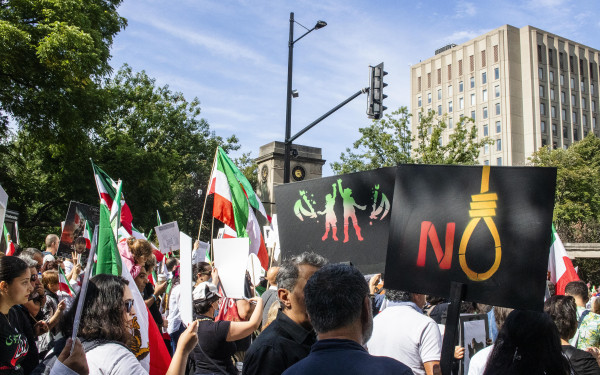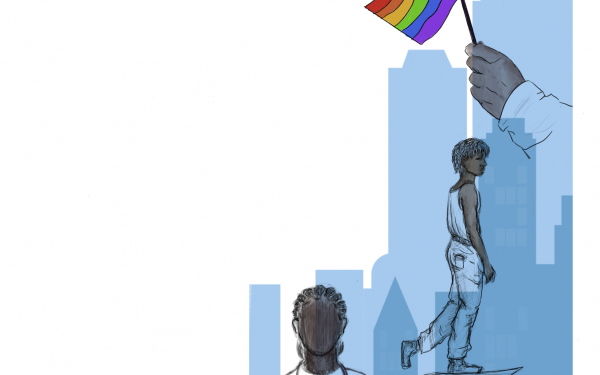The fight against Canada’s disposal of its ‘essential workers’
Migrant community and allies unite to protest for universal status
Montreal’s Immigrant Workers Centre (IWC) spearheaded a protest for migrant regularization on Nov.2, along with over 50 of its partner organizations.
The march began at Rosemont metro station at 1 p.m., with a host of speakers initiating the event. They had various demands, centered on migrant regularization and the abolishment of the new restrictions within Canada’s temporary work programs.
Over 100 protesters were present at the march, holding dozens of posters, banners and flags. Chants such as “solidarity with those without papers” and “good enough to work, good enough to stay” were featured at the demonstration.
Despite what organizer Gaurav Sharma described as “fear that if they fight for their rights, they will be deported,” many showed up to make their voices heard. The crowd condemned government hypocrisy and called for the abolition of the cycle of precarity.
“[The government] comes out with a bunch of laws, which make no sense, and which criminalize refugees, asylum seekers, international students, temporary foreign workers and of course people without papers,” said Viviana Medina, a key organizer for migrant justice at the IWC.
Medina emphasized how this issue transcends Prime Minister Justin Trudeau's three-year-old promise of regularization, and has now created a crisis. She explained that there’s a continuous precarization of migrant workers through a lack of accountability towards abusive employers and the implementation of “anti-migrant” policies.
The Quebec government suspended both the Regular Skilled Worker Program and the Quebec Experience Program—the two biggest pathways to permanent residency— in October. In September, the renewal eligibility of the closed work permit changed to exclude “low-wage” workers within the Greater Montreal area.

Mostafa Henaway, author of Essential Work, Disposable Workers and fellow community organizer at the IWC, explained that this series of selectively restrictive policies is an attempt by the government to “appease their [right-wing and xenophobic] base while making capital happy.”
“[The government] wants [immigrants] here, and wants them here as disposable,” Henaway said. “They don’t want them here with permanent residency, they don’t want them here with the same rights.”
These laws, while limiting the pool of legal work permits, will not deter workers from continuing to work, according to Henaway.
“People don’t have a choice in their migrating, they’re not going to turn around and go home,” he said. “So now we’re going to have this pool of undocumented labour that’s going to be even more exploitable [without the protections of status].”
Medina explained that migrants and activists view the codified impunity of employers in tandem with the disenfranchisement of migrants, as a systemic weaponization of the “disposability” and “precarity” of migrant workers in Quebec. Protesters at the march on Nov. 2 described themselves as an unavoidable reaction to the forced insecurity that these laws create.
“This is not a question of compassion, it’s a question of human rights and social justice,” said Chrystal, a member of the IWC women’s committee who has been granted full name anonymity for safety reasons. “We are not asking for privileges, we are asking for fundamental rights: The right to live with dignity, to have access to healthcare, to live without fear.”







